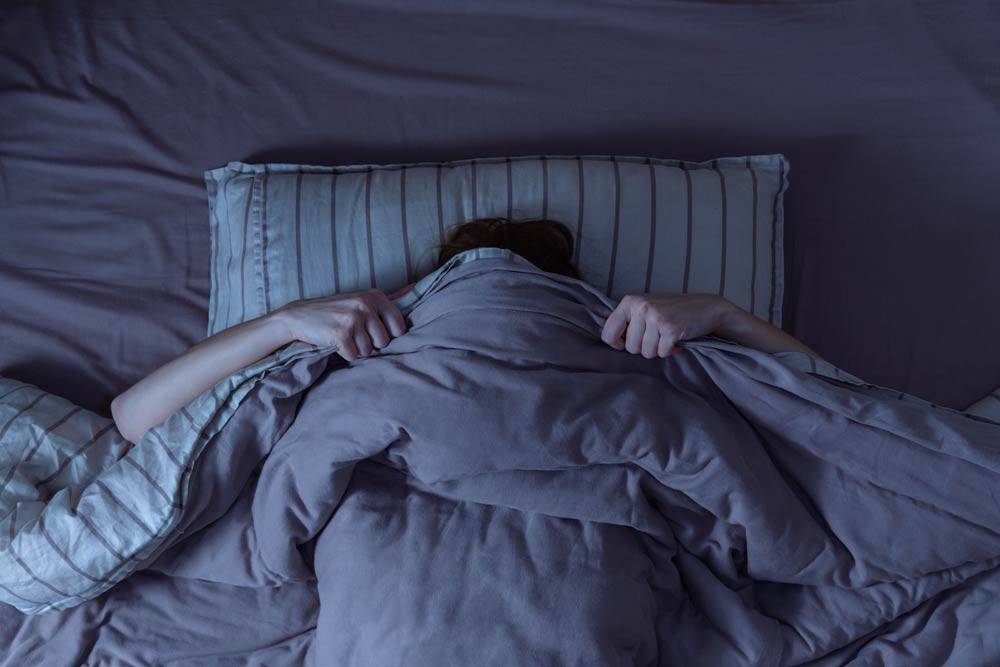How ADHD Disrupts Circadian Rhythms: Understanding the Connection and Improving Sleep

Discover tips, treatment options, and support strategies from the Finding Focus Care Team

Last Update: February 15th, 2025 | Estimated Read Time: 3 min
Many people with Attention-Deficit/Hyperactivity Disorder (ADHD) struggle with sleep, often experiencing difficulty falling asleep, staying asleep, and waking up refreshed. One major reason is that ADHD disrupts circadian rhythms, the body's internal clock that regulates the sleep-wake cycle. This article explores how ADHD affects circadian rhythms, the impact of sleep deprivation on ADHD symptoms, and strategies to improve sleep quality.
How ADHD Affects Circadian Rhythms
Circadian rhythms regulate sleep and energy levels over a 24-hour cycle, responding primarily to light exposure. For most people, melatonin (the sleep hormone) increases in the evening, signaling bedtime. However, research indicates that people with ADHD have a delayed melatonin release, making it harder to fall asleep at conventional times. This often results in Delayed Sleep Phase Syndrome (DSPS), where individuals naturally prefer staying up late and struggle with early mornings (Weiss et al., 2010).
Common Sleep Challenges with ADHD
- Difficulty falling asleep: Racing thoughts make it hard to wind down.
- Restless sleep: Light, fragmented sleep leads to frequent wake-ups.
- Trouble waking up: Delayed sleep cycles make mornings feel unbearable.
- Daytime sleepiness: Poor sleep exacerbates low energy and difficulty concentrating.
Many assume that people with ADHD just need better sleep habits, but their brains are wired differently, making traditional sleep schedules challenging.
The Psychological Effects of Sleep Deprivation
Lack of sleep can intensify ADHD symptoms, including:
- Reduced Focus & Memory: Sleep is vital for memory consolidation. Poor sleep worsens forgetfulness and cognitive function (Cortese et al., 2020).
- Increased Emotional Sensitivity: Sleep deprivation affects impulse control, making emotions feel more intense and harder to regulate.
- Lower Motivation Levels: Sleep loss decreases dopamine levels, worsening ADHD-related motivation difficulties.
Studies indicate that 80% of adults with ADHD experience sleep disturbances, compared to 30% of the general population (Bijlenga et al., 2019).
Strategies to Improve Sleep with ADHD
1. Stick to a Consistent Sleep Schedule
Going to bed and waking up at the same time daily (even on weekends) helps regulate the body's internal clock.
Tip: Set a bedtime alarm to remind yourself when to start winding down.
2. Develop a Relaxing Bedtime Routine
A predictable routine signals your body that it’s time to sleep.
- Dim the lights: Lower light levels 1-2 hours before bed to promote melatonin production.
- Read or listen to calming music: Avoid stimulating content.
- Progressive muscle relaxation: Tensing and relaxing muscles can ease physical restlessness.
- Use a weighted blanket: It can reduce anxiety and promote deeper sleep (Gringras et al., 2014).
3. Reduce Blue Light Exposure
Blue light from screens suppresses melatonin, making it harder to fall asleep.
Tip: Use blue-light blocking glasses or enable night mode on devices.
4. Increase Morning Sunlight Exposure
Morning sunlight helps reset circadian rhythms and boost alertness.
Tip: Spend at least 10-30 minutes outdoors or near a bright window after waking up.
5. Manage Stimulants (Caffeine & ADHD Medications)
Both caffeine and stimulant medications can interfere with sleep. If sleep is an issue, consider adjusting the timing of your medication and avoiding caffeine 6 hours before bedtime.
6. Use White Noise or Pink Noise
Many with ADHD are sensitive to noise, making it harder to stay asleep. White noise (like a fan) or pink noise (rain sounds) can help mask disruptions.
Tip: Apps like Rain Rain or Noisli offer sleep-enhancing background sounds.
7. Consider Melatonin Supplements (With Caution)
A low-dose melatonin supplement (0.5-3 mg) taken 30-60 minutes before bed may help regulate sleep, but consult a doctor before use (Van der Heijden et al., 2007).
8. Exercise Regularly, But Not Too Late
Physical activity improves sleep, but avoid intense workouts too close to bedtime.
Tip: If exercising at night, try yoga or light stretching instead of high-intensity training.
Final Thoughts
Understanding how ADHD disrupts circadian rhythms is key to improving sleep. If you struggle with sleep, know that it’s a common challenge for people with ADHD. By implementing small, science-backed changes, you can improve your sleep and enhance your overall well-being.
Finding Focus Care Team
We are a group of nurse practitioners, continuous care specialists, creators, and writers, all committed to excellence in patient care and expertise in ADHD. We share content that illuminates aspects of ADHD and broader health care topics. Each article is medically verified and approved by the Finding Focus Care Team. You can contact us at Finding Focus Support if you have any questions!
References
Weiss, M. D., & Salpekar, J. (2010). Sleep problems in the child with attention-deficit hyperactivity disorder: defining aetiology and appropriate treatments. CNS drugs, 24(10), 811–828. https://doi.org/10.2165/11538990-000000000-00000
Cortese, S., et al. (2020). Sleep disturbances and ADHD: Meta-analysis of objective studies. Journal of Attention Disorders, 24(6), 875-886. https://doi.org/10.1177/1087054717690809
Bijlenga, D., et al. (2019). The role of circadian rhythms in ADHD. Sleep Medicine Reviews, 47, 55-72. https://doi.org/10.1016/j.smrv.2019.06.001
Gringras, P., et al. (2014). Weighted blankets and sleep in ADHD: A randomized controlled trial. Pediatrics, 134(2), 298-306. https://doi.org/10.1542/peds.2013-4285
Van der Heijden, K. B., et al. (2007). Melatonin for sleep disorders in children with ADHD: A randomized clinical trial. Journal of Child Neurology, 22(5), 591-598. https://doi.org/10.1177/0883073807302600





